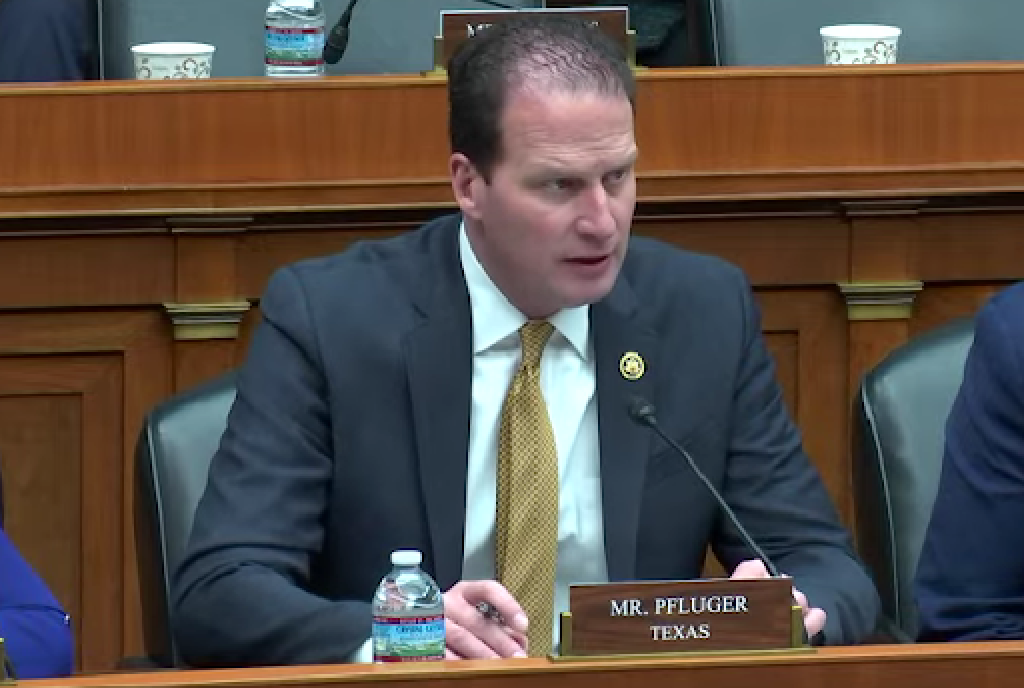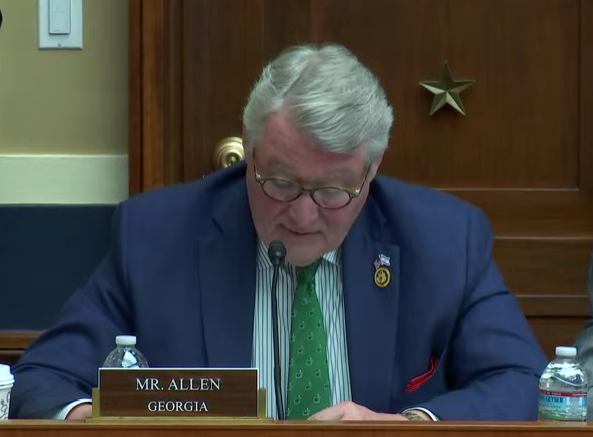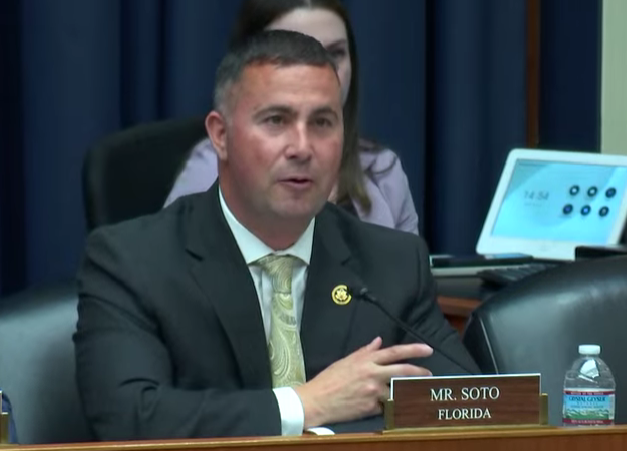
WASHINGTON, March 12, 2024 – Unanimous support propelled forward four pieces of legislation aimed at countering foreign threats to the United States’ security and economic leadership in the communications sector, during an Energy and Commerce subcommittee markup session Tuesday.
Throughout the session, members of the House Communications and Technology subcommittee highlighted the imperative to address alleged national security threats posed by the Chinese Communist Party.
The bills address attempts to control the global communications, distribute subsidized equipment, and exploit security weaknesses to potentially conduct espionage on Americans.

The members said the U.S. response must involve securing supply chains, safeguarding allies, enhancing cybersecurity defenses, and engaging in strategic competition with China in crucial technologies.
The bills cleared on Tuesday are aimed at various aspects of this challenge.
Drones
This bill, H.R. 2864 – Countering CCP Drones Act, targets DJI Technologies, a company with ties to the CCP, by adding its equipment to the Federal Communications Commission’s covered list, effectively banning it from the United States due to national security concerns.
To ensure a comprehensive approach, an amendment was introduced by Representative August Pfluger, R-Texas, to ban not only hardware but also software and technology associated with DJI and other adversarial entities.
“Like all CCP organizations, DJI is subject to China’s national intelligence laws, which requiresrequire companies to support, assist, and cooperate with national intelligence efforts. If requested DJI wouldn’t be forced to turn over any American data they collect,” said Pfluger.
“That’s why we must prevent the FCC from authorizing these drones from operating inside the United States. Removing these drones is essential for our national security,” he said.
Foreign communications transparency
This legislation, H.R. 820 – Foreign Adversaries Communications Transparency Act, mandates the FCC to annually publish a list of entities with ties to China, Iran, North Korea, or Russia that hold FCC licenses or authorizations, enhancing transparency and awareness of potential threats.
An amendment, incorporating technical assistance from the FCC and other stakeholders, was introduced by Rep. Rick Allen, R-Georgia, to refine the bill’s implementation process, ensuring accurate and comprehensive reporting of relevant entities.
“We have adversaries that are committed to overtaking our economic leadership. Some have licenses and different authorizations from the FCC which they can use to broadcast propaganda, interfere with our communication networks or even spy on Americans,” said Allen.
“We need to know which foreign adversaries have these licenses and authorizations which is why I’m proud to support this legislation that would require the FCC to publish a list of these countries.”

Task force on 6G technology
With the race to establish sixth-generation ‘6G’ wireless technology intensifying, this H.R. 1513 – Future Uses of Technology Upholding Reliable and Enhancing Networks (FUTURE) Networks Act, directs the FCC to establish a task force comprising public and private sector stakeholders to develop a comprehensive report on the standards development process and potential uses of 6G technology. No specific amendments were introduced during the briefing.
“This legislation recognizes the role wireless technology plays in connecting our communities, driving economic growth, fostering national security and fostering innovation,” said Rep. Debbie Dingell, D-Michigan, who co-chairs the Congressional 5G and Beyond Caucus.
“With China vying for dominance in the telecommunications sector, we must continue to look forward towards the future to maintain our leadership position,” she said.

Routers and modems by Chinese equipment makers
H.R. 7589 – Removing Our Unsecure Technologies to Ensure Reliability and Security (ROUTERS) Act, directs the National Telecommunications and Information Administration to study whether routers and modems produced by companies with ties to adversarial nations pose an unacceptable risk to national security, particularly highlighting concerns regarding cyber vulnerabilities. No specific amendments were introduced during the briefing.
“I am pleased to lead the ROUTERS Act,” said Rep. Bob Latta, R-Ohio. “Chinese state-sponsored companies make unsecured routers that are easily susceptible to cyberattacks and serve as entry points for bad actors into consumers’ homes, networks, and devices.”
“Fortunately, the U.S. has taken strong steps to keep Huawei and ZTE out of our homes and networks, and I’m proud that this bill builds on those efforts,” he said.
The House Communications and Technology subcommittee has focused on alleged threats posed by the Chinese Communist Party since the enactment of the Secure and Trusted Communications Networks Act in 2020.
This legislation established a program – sometimes dubbed “rip and replace’ – aimed at removing Chinese-manufactured Huawei and ZTE equipment from U.S. communications networks.
The four bills advanced today represent a multifaceted approach to build upon the foundation laid by the Secure and Trusted Networks Act. However, subcommittee Chairman Latta expressed frustration over the ongoing challenge of securing full funding for this critical program.
During the proceedings, Rep. Frank Pallone Jr., D-New Jersey, used his opening remarks to emphasize the importance of passing the ACP Extension Act.

Additionally, Rep. Darren Soto, D-Florida, emphasized the significance of bipartisan cooperation within the subcommittee, underscoring the unity and commitment to addressing national security concerns.
With the amendments made, these bills go to the full Energy and Commerce Committee for further consideration


